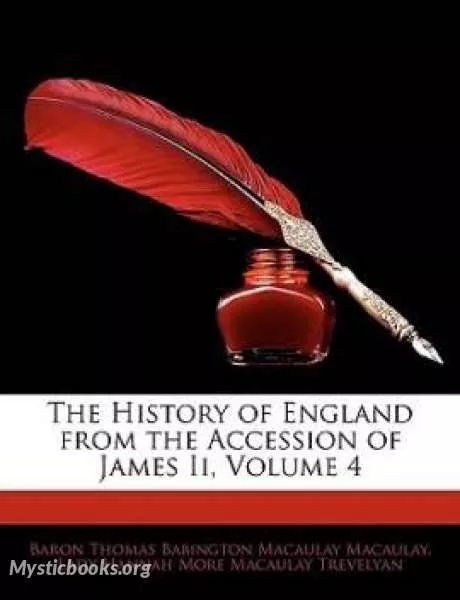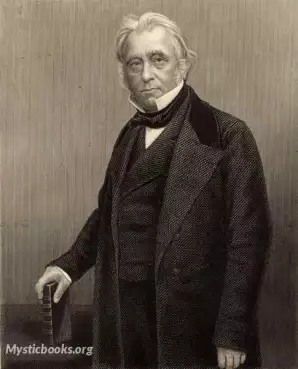
The History of England, from the Accession of James II - (Volume 4, Chapter 17)
'The History of England, from the Accession of James II - (Volume 4, Chapter 17)' Summary
Macaulay's approach to writing the History was innovative for his period. He consciously fused the picturesque, dramatic style of classical historians such as Thucydides and Tacitus with the learned and factual approach of his 18th-century precursors such as Hume, following the plan laid out in his own 1828 "Essay on History".
The History is famous for its brilliant ringing prose and for its confident, sometimes dogmatic, emphasis on a progressive model of British history. According to this view, England threw off superstition, autocracy and confusion to create a balanced constitution and a forward-looking culture combined with freedom of belief and expression. This model of human progress has been called the Whig interpretation of history.
Book Details
Language
EnglishOriginal Language
EnglishPublished In
1848Authors

Thomas Babington Macaulay
England
Thomas Babington Macaulay, 1st Baron Macaulay was a British historian and Whig politician. He is considered primarily responsible for introducing the Western education system in India. He wrote extens...
Books by Thomas Babington MacaulayDownload eBooks
Listen/Download Audiobook
- Select Speed
Related books

Christian Life and Character of the Civil Institutions of the United States by Benjamin Franklin Morris
This book examines the relationship between Christian principles and the foundation of American civil institutions. Benjamin Franklin Morris delves in...

Reign of Queen Anne, Volume I by Justin McCarthy
This book, the first volume of a two-part work, delves into the reign of Queen Anne of England, Scotland, and Ireland, exploring the political landsca...

Mendizábal by Benito Pérez Galdós
Mendizábal, a novel by Benito Pérez Galdós, is part of his *Episodios Nacionales*, a series of historical novels that explore key moments in Spanish h...

Memoirs of Chateaubriand Volume V by François-René de Chateaubriand
Volume 5 of Chateaubriand's memoirs continues his account of his life and experiences, offering a firsthand perspective on the political and intellect...

History of Troilus and Cressida by William Shakespeare
Shakespeare's *The History of Troilus and Cressida* is a complex and challenging play that explores the themes of love, war, and the nature of heroism...

Ukraina and the Peace-conference by Stanislav Dnistriansky
It explores the events that took place during the Peace Conference of Paris in 1919 and the impact it had on Ukraine's struggle for independence. Writ...

Friendly Road, New Adventures in Contentment by Ray Stannard Baker
The Friendly Road is a memoir written in the early 20th century, narrated as a fictionalized account of a man named David Grayson (a pseudonym for aut...

Overdrukken by Charles Dickens
Deze verzameling journalistieke artikelen, oorspronkelijk gepubliceerd in 1861, biedt een inkijk in de scherpe observaties en sociale kritiek van Char...

Queen Victoria by Giles Lytton Strachey
Lytton Strachey’s first great success, and his most famous achievement, was "Eminent Victorians" (1918), a collection of four short biographies of Vic...

Letters on England by Voltaire
Voltaire's *Letters on England* is a collection of essays written during his exile in England. It offers a sharp comparison between English and French...
Reviews for The History of England, from the Accession of James II - (Volume 4, Chapter 17)
No reviews posted or approved, yet...